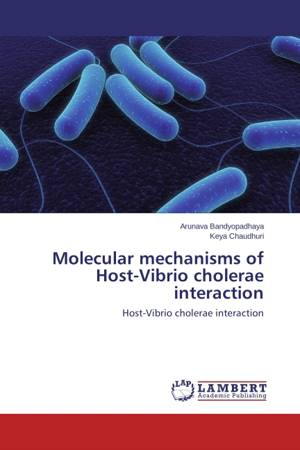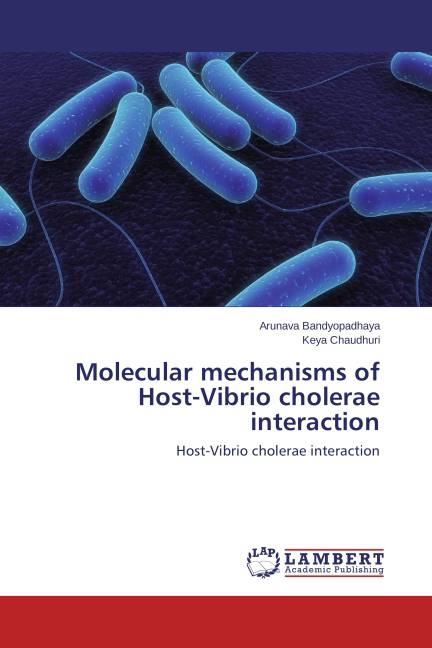
Bedankt voor het vertrouwen het afgelopen jaar! Om jou te bedanken bieden we GRATIS verzending (in België) aan op alles gedurende de hele maand januari.
- Afhalen na 1 uur in een winkel met voorraad
- In januari gratis thuislevering in België
- Ruim aanbod met 7 miljoen producten
Bedankt voor het vertrouwen het afgelopen jaar! Om jou te bedanken bieden we GRATIS verzending (in België) aan op alles gedurende de hele maand januari.
- Afhalen na 1 uur in een winkel met voorraad
- In januari gratis thuislevering in België
- Ruim aanbod met 7 miljoen producten
Zoeken
Molecular mechanisms of Host-Vibrio cholerae interaction
Host-Vibrio cholerae interaction
Arunava Bandyopadhaya, Keya Chaudhuri
Paperback | Engels
€ 91,45
+ 182 punten
Omschrijving
Cholera remains a devastating bacterial cause of human morbidity and mortality in developing countries. The diseases is produced by a gram-negative, motile Vibrio cholerae that colonizes in the human intestine and secretes a potent cholera toxin, which ultimately stimulates cellular adenylate cyclase to cause massive intestinal fluid loss leading to profuse watery diarrhea. Live-attenuated V. cholerae vaccines harboring deletions of cholera toxin have great promise for reducing the global burden of cholera. However, development of live vaccines has been hampered by the tendency of such strains to induce reactogenic diarrhea in human subjects. The molecular bases of reactogenicity are unknown. In this dissertation, we have illustrated the molecular mechanisms of host-V. cholerae interaction as well reactogenic mechanism of V. cholerae vaccines. The basic concepts of host-pathogen interaction provide new avenues for translational approach to develop the efficient human vaccine and novel therapeutics.
Specificaties
Betrokkenen
- Auteur(s):
- Uitgeverij:
Inhoud
- Aantal bladzijden:
- 308
- Taal:
- Engels
Eigenschappen
- Productcode (EAN):
- 9783659261664
- Verschijningsdatum:
- 25/10/2012
- Uitvoering:
- Paperback
- Afmetingen:
- 150 mm x 220 mm
- Gewicht:
- 454 g

Alleen bij Standaard Boekhandel
+ 182 punten op je klantenkaart van Standaard Boekhandel
Beoordelingen
We publiceren alleen reviews die voldoen aan de voorwaarden voor reviews. Bekijk onze voorwaarden voor reviews.









